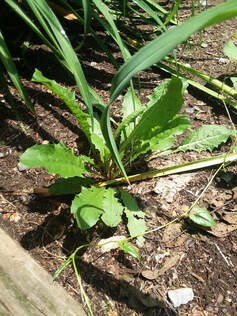|
I ghostwrote an article a while back.
It was an edu-marketing piece for swine veterinarians and producers. Luckily, my pre-writing preparation included an interview with a veterinarian, an expert who knew his stuff. I peppered him with questions, and he generously responded with clear, detailed answers. And as we talked, it slowly dawned on me that I was uncovering a content goldmine. (Amassing excellent content isn’t the only benefit of interviewing; read more about that here.) Later, as I read through the transcription of the interview, I thought, “Wow, this is solid, in-depth stuff.” But even with all that superb information, I knew I still had to weed. Weeding, as I like to call it, is a part of writing that often gets overlooked but is oh so crucial to creating a polished, coherent product. Weeding involves sifting and combing through research, notes, transcriptions, etc., and culling the essential points. For thorough weeding, the writer first has to step back and say, “Ok, the purpose of this article is (fill in the blank), and the audience it’s speaking to is (fill in the blank), and I’m limited to (blank) amount of words.” I might even type this statement at the top of my draft, so it’s always in view. Knowing what you need to convey crystallizes the valuable, pertinent details of your accumulated research data. And weeding is separate from outlining. Outlining is your roadmap; it guides you from start to finish on your writing journey. Any gardener knows that weeding is a tedious chore but well worth it because it beautifies a garden. Beautiful content probably isn’t your goal, but valuable content? Absolutely. So next time, remember to weed before you write. Don’t like to get your hands dirty? I don’t mind! Get in touch with me here. As a marketer in the animal health industry, where it’s common to sell complex, sophisticated, even vulnerable products, do you ever share with your customers that your product might fail? Let’s say you were faced with this conundrum. An unhappy customer confronts you. He bought your product and is claiming that it’s no good, that it doesn’t work. In reality, you know the product wasn’t as effective because certain external factors known to negatively impact its performance were present, which produced subpar results. Nonetheless, you now have a customer in front of you who’s hopping mad. In the animal health business, this is not unheard of. I know, I’ve worked with clients challenged by similar situations. These situations occurred because customers were unaware that the product could be compromised in a variety of ways. We decided that going forward, the best course of action was to take an edu-marketing approach to promote the product. (Learn more about edu-marketing here.) In a nutshell, edu-marketing content educates customers about ‘the good, the bad, and the ugly’ of a product, so to speak. In one of my client’s cases, the content delved into the myriad of influences that could hamper their product’s performance. It also included recommendations to alleviate these interfering factors. The intent of edu-marketing is to build trust and credibility, achievable with forthright and proactive content. It communicates that you know your product well, know that it’s good, and want customers to succeed when they use it. If you’d like to set your marketing content apart from the others, I suggest giving edu-marketing a go.
If you’ve ever hired someone to write a case study, white paper, or special report (or even written one yourself), you know that research is significant to the process. And I think it’s fair to say that for most of us, research begins with Google. Online research is the gold standard today and yields valuable results for sure. But I’ve found that interviewing a subject matter expert (SME) never lets me down when I’m in the hunt for premium content. Facts and details garnered from conversations with an expert can uncover some sparkling gems of information. But that’s not the only reason why I suggest interviewing as an alternative to Google. Here are some more that make it worthwhile. ~ Reduces research time. Scouring the web for articles that may or may not provide useful information can eat up a good chunk of time. Sometimes it feels like you’re circling your topic, slowly closing in on it with narrower search queries until finally, you hit some results that fit. This hit-or-miss searching is a time-waster. When you interview, by preparing questions in advance, you can approach the topic head-on and collect up-to-date, specific industry information from an expert. I can generally accomplish this in about 30 minutes to an hour. ~ Information gaps are quicker to fill in when you interview a subject matter expert. With online research, the information that’s returned sometimes isn’t quite right. The focus might be too narrow or addresses only one part of your topic. So you keep searching for the additional pieces. And when you find them, there’s the chance that the information is out of date, incomplete, or too general. Or, maybe you have a good grasp of the topic you’re writing about but want to dig deeper. Input from an expert source could help you flesh out some juicy details. ~ Some of the best content lives in another person’s head. Because your expert is sharing her unique perspective and experience, insightful and profound details often bubble up to the surface during the interview. Your back-and-forth discussion can go down paths that you might not have considered and lead to quality material. Such tasty morsels can offer a writer more clarity, and clear writing is a goal of any edu-marketing piece Research doesn’t have to begin and end with Google. Why not give interviewing a try? I think the stellar results you can achieve will surprise you.
|
AuthorSuzanne Quigley - Copywriter Archives
December 2023
Categories
All
|


